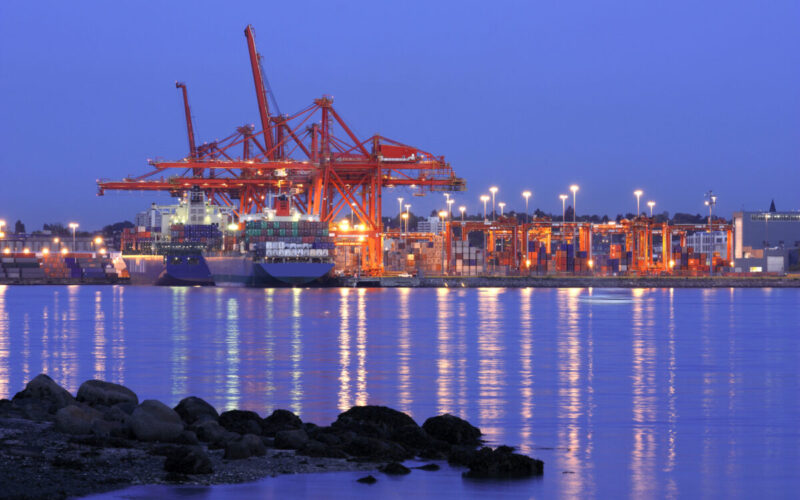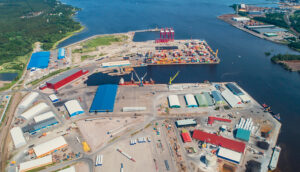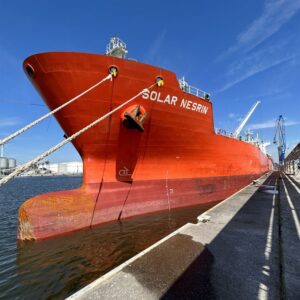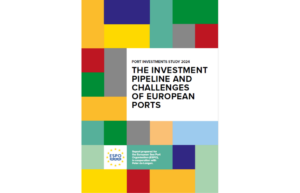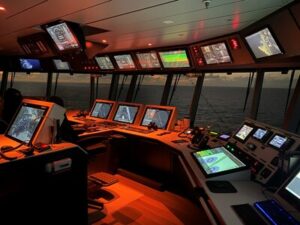Canada’s West Coast dockworkers and the employers’ association have reached a settlement as Canada’s federal government intervened following another collapsed deal for the second time this month.
Looking to end a dispute that has stifled operations at the nation’s busiest port, the International Longshore and Warehouse Canada union (ILWU) and the British Columbia Maritime Employers Association (BCMEA) are recommending a ratification of the collective agreement.
This tentative agreement comes two days after the ILWU turned down the BCMEA’s proposed labour deal for the second time in July. In response to the prolonged dispute, the Labor Minister, Seamus O’Regan Jr., instructed the Canada Industrial Relations Board (CIRB) to intervene and help find a resolution.
While having refrained from detailing the specifics of the new settlement agreement, both parties mentioned that the CIRB played a role in facilitating the resolution.
READ: Canada West Coast port labourers call to strike in unanimous vote
These strikes had subsequently crippled trade flow in and around these ports that was worth up to C$10 billion ($7.6 billion). This led to inflation in the cost of goods along with other disruptions suffered by mines and pulp mills, according to Bloomberg.
The union faced strong criticism from various business groups, including the regional board of trade and the nation’s largest association representing small and medium-sized businesses. These groups insisted that it was imperative for the government to step in and take action to ensure the ports remain operational, reported Bloomberg.
“Businesses from coast to coast are paying the price for the union’s irresponsible actions… The federal government must do what’s best for the country, our entrepreneurs, and the economy,” the Canadian Federation of Independent Business said.
The economic significance of the strike was so much so that it compelled Prime Minister Justin Trudeau’s government to deploy a mediator to aid in the collective bargaining process.
Progress in the form of a tentative agreement achieved between the two parties on 13 July was soon shut down when it was rejected thereafter by the ILWU’s caucus, leaving open the possibility of another work stoppage as they retain the option to strike again with 72 hours’ notice.
READ: US ILWU rejects diverted vessels amid Canada strikes
The BCMEA thus proposed a second deal that provided a compounded wage increase of 19.2 per cent. According to the BCMEA, this deal would have “potentially increased the median union longshore compensation from C$136,000 ($102,775) to C$162,000 ($122,423) annually, not including benefits and pension”.
“The proposed deal also provided a signing bonus of C$1.48 ($1.12) per hour worked to be paid to each employee (equivalent to approximately C$3,000 ($2,267) per full-time worker), and an 18.5 per cent increase to a Modernization and Mechanization retirement lump sum payment. This would increase their retirement pay-out in 2026 to C$96,250 ($72,736) for eligible retiring employees, over and above employees’ pension entitlements,” BCMEA reported.
This deal, however, was rejected again by the ILWU. While acknowledging the BCMEA’s concerns over the rejection, the ILWU stressed that their issues rested more in the BCMEA’s practice of contracting out maintenance work that threatened the job security and integrity of ILWU’s registrants.
“While ILWU Canada recognises the need for a competitive and efficient maritime industry, this should not displace skilled and experienced workers who have dedicated their careers to ensuring the smooth functioning of Canada’s West Coast ports,” said ILWU Canada President, Rob Ashton.
This second rejection led O’Regan Jr. to direct the CIRB to facilitate a deal being reached between the two parties. “The government is prepared for all options and eventualities… Our economy cannot face further disruption from this dispute,” O’Regan said in a statement.

